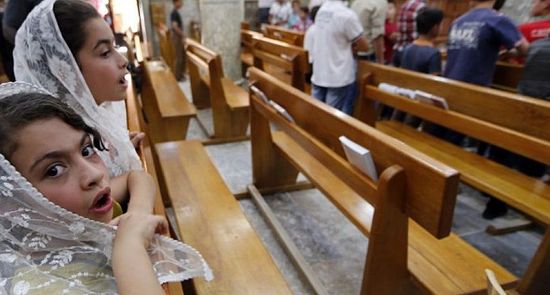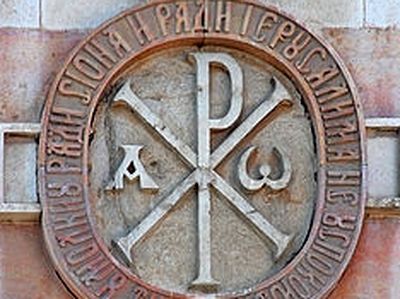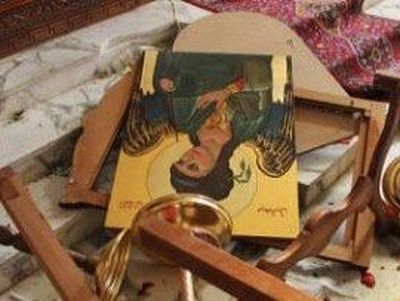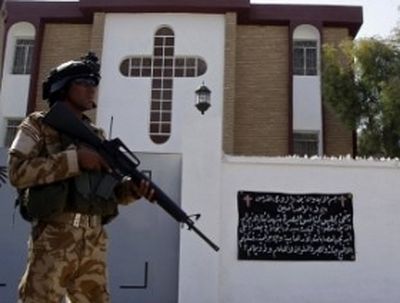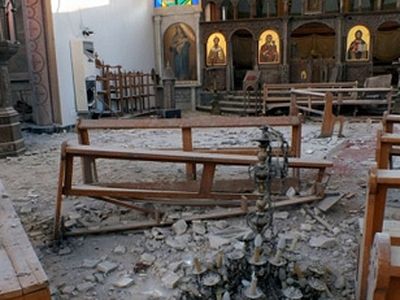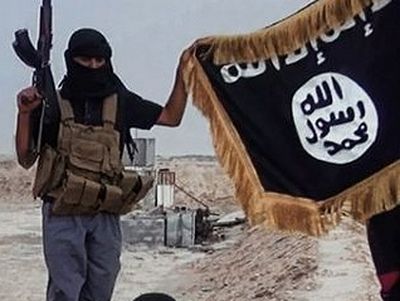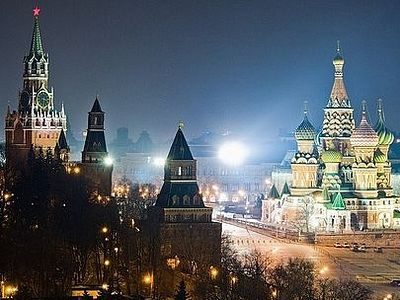Source: Arab Orthodoxy
Starting on December 4, Moscow is waging a diplomatic
offensive on several fronts to come to the aid of
Christians in the Middle East.
A historical legacy, the Russian presence in the
region tends to occupy the void left by the Western
powers.
As the conflicts in Iraq and Syria continue to bathe the region in blood, Russia plays its cards in the Middle East where more than ever it is positioning itself as the champion of the protection of Christians. After the categorical rejection of military intervention against Damascus in 2012 and 2013, it is now time for the offensive in multilateral forums.
During the course of a ministerial council of the Organization for Security and Co-operation in Europe (OSCE) in Basel on Thursday, December 5 and Friday, December 6 dedicated to the situation in Ukraine and the struggle against international terrorism, Moscow intends to seek that more steps be taken for the Christians of the Middle East and North Africa. Simultaneously in Geneva, a Russian draft resolution for coming to the aid of the Christians of the region may be submitted to the United Nations Council for Human Rights.
There is nothing new about Russian activism on behalf of the Christians of the Middle East. "In the late 19th century, the protection of Orthodox minorities in the region was the workhorse of the Russian Empire, as indeed, France and Austria were the principal powers protecting the Catholics," remarks Carol Saba, director of communication for the Assembly of Orthodox Bishops in France. After the long, anomalous Soviet period and the end of the Cold War, now that France and the United States are less and less present in the Middle East, Moscow is making a return, including in its portfolio the safeguarding of Christian communities.
"The Christian roots of European Civilization have been forgotten."
These initiatives on the diplomatic front are being accompanied by a more general discourse on the defense of Christian values and the struggle against "Christianophobia". In an article published on November 25 on the website of the English-language Russian network RT.com, the Russian ambassador to the United Kingdom, Alexander Yakovenko, called upon European countries to take into account "the Christian roots of the European civilization, which are now often forgotten for the sake of political correctness." "These are two sides of the same coin," says Fr Nicholas Kazarian, an Orthodox priest and a researcher affiliated with the Institute for International and Strategic Relations, "Facing a secularized west accused of having abdicated on values, Russia is positioning itself as the protector of Christianity wherever it is attacked, in the East as in the West."
The Syrian conflict has served to catalyze this policy. "From the beginning, the Russians have taken into account the analysis of local prelates: even if it is far from representing the ideal, the regime of Bashar al-Asad at least has the merit of protecting Christians in the face of the Islamist menace," summarizes Stanislas de Laboulaye, a former diplomat posted successively to Jerusalem, Moscow and the Holy See.
However, as explains Fr Nicholas Kazarian, it is especially the ancientness of the ties between the Patriarchate of Antioch (the most important church in Syria) and the Patriarchate of Moscow that explains the existence today of a veritable "religious axis" between Moscow and Damascus. This is especially true as regards the ancient Imperial Orthodox Palestine Society: in March 2013, it sent 70 tons of aid to Damascus, to which was added a check for 1.3 million dollars from the Patriarchate of Moscow. Visits at the highest level-- Patriarch Kirill of Moscow to Aleppo in 2011 and Patriarch John X of Antioch to Moscow in early 2014-- illustrate the quality of the historic ties between the two patriarchal sees.
"It appears for the moment that this solidarity is only a moral solidarity."
However, as in the 19th century, this aid remains selective and primarily concerned with the Orthodox. In October, the Melkite Catholic Patriarch of Antioch received a representative from Patriarch Kirill of Moscow who came to assure him of the "solidarity of his church with the suffering of the Christians of the Middle East." "But for our church, it seems for the moment that this solidarity is only a moral solidarity," according to someone in his circle. Likewise in Iraq, where Petros Moshe, Syrian Catholic Archbishop of Mosul today has taken refuge in Kurdistan along with the majority of Christians from the Niniveh Plain. "Despite all the sympathies expressed in official declarations, I have never seen any Russian aid materialize for Iraqi Christians."
On the ground, reactions to the Russian presence are divided. "Those who have a knife to their throat after having been forcibly displaced, who have lost their relatives and have seen their churches and monasteries burned, are inevitably receptive to talk of the powerful Russian Church that comes to their aid," says someone close to Patriarch John X of Antioch.
Others, while remaining grateful, prefer to emphasize that the future is citizenship, not the protection of minorities. Georges Massouh, a professor at the Orthodox Balamand University, takes a harsher position. "The US, France or Russia, it's the same fight! Under the pretext of defending minorities, these powers have always put their own interests first: oil, gas, access to warm water ports... It is for us, Christians and Muslims of the region, to rebuild our political contract without intervention from outside."
